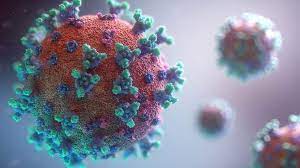Pavia Intensive School for Advanced Graduate Studies
Introduction
A critical challenge in global health is the emergence and reemergence of old and new viral infectious diseases. These phenomena are driven by rapid human development and in changes in demographics, populations and the environment. In particular, changes in ecosystems at the human-animal interface have led to new zoonoses. Viral pathogens do not recognize geopolitical borders and in the present “globalized” environment of interdependent trade, travel, migration, and international economic markets, many factors play an important role in the rise, emergence, and reemergence of viral diseases.
Content
The course aims at providing an interdisciplinary, inter-sectorial overview of the rising problem of emerging viral infectious diseases. From genomic and clinical aspects, to social and demographic drivers and control strategies, the course will provide an up-to-date set of both basic and advanced concepts, which will help the attendees to build a strong competence in this field of increasing importance. Frontal lessons by world leaders in their respective fields will be integrated with practical exercises. Practical lessons will have two major focuses i) bioinformatic analysis of genomic and meta-genomic data ii) teamwork and cooperative learning. The combination of seminars from experts and exercises with real data will consolidate the fundamental concept that complex problems must be addressed by interdisciplinary coordinated efforts tackling all the different aspects. A session on scientific communication will provide the attendees with an additional technical skill.
The speakers have been selected among experts to cover the following topics:
- Global epidemiology of emerging viruses: “one health” perspectiveCoronaviruses – with a focus on Sars-COV-2 genomics and the COVID disease epidemiology and treatment
- Insect borne emerging virusesMammalian borne emerging viruses (i.e. ebola, hepatitis)
The course is proposed to PhD students in biology/microbiology courses, including epidemiology and bioinformatics, but might be of interest to PhD students attending doctoral schools in public health policies (a basic background in biology is nonetheless required).
Course organisation
Frontal sessions: 20 hours.
Data analysis laboratories: 10 hours.
Estimated participants: 50.
The course will be entirely online.
Organisers: Ph.D. program in Genetics, Molecular and Cellular Biology
Course directors: Giovanni Maga, Fausto Baldanti, Davide Sassera
Organizing and scientific committee: Maria Rosalia Pasca, Mariangela Bonizzoni, Roberta Migliavacca, Lino Ometto, Francesco Lescai
